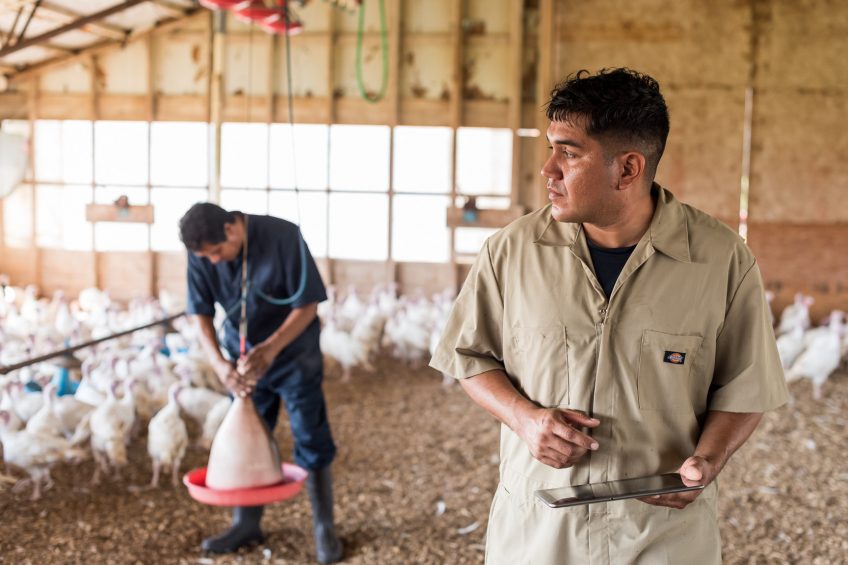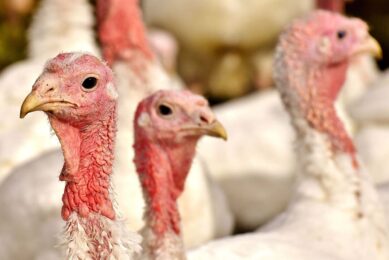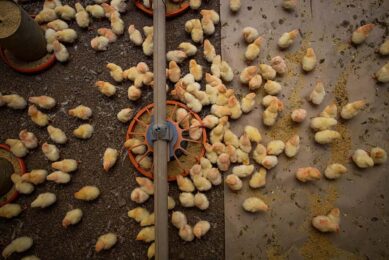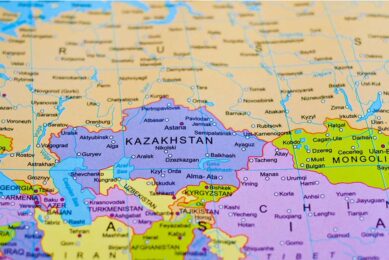Blockchain technology: Transforming poultry supply chains

The online currency Bitcoin has been hitting headlines worldwide as its value soars, but the technology behind it has big potential for the poultry industry and its supply chain.
5 years ago scandal erupted across Europe as consumers discovered their beef dishes had an unexpected ingredient: horse meat. In 2008 melamine-contaminated milk was being fed to Chinese infants, causing kidney issues. Supply chains are incredibly complex, and are only becoming more so, with raw ingredients and part-processed foods zig-zagging across countries and continents before being offered as finished products to shoppers.
Traceability
Keeping track of, for example, a dozen eggs processed into powder before eventually ending up as baked goods is by no means easy. Consider the difficulty in tracing a chicken dinner right back to the parent stock from which it was produced – not impossible, but certainly not easy.
That’s where blockchain technology may begin to make a difference in the coming years. It creates a shared database and a digital ‘ledger’ of all transactions made along the supply chain. This ledger means the transparency and legitimacy of the data is guaranteed.
“Traditionally, stakeholders in a food value chain are required to manually pass on data associated with the physical product,” says Rabobank analyst Harry Smit (see box, Smart payments and faster financing). “The shared nature of blockchain technology means that, once data is entered within a blockchain, it can be viewed by all participants. Thus, stakeholders in the blockchain are better informed about what’s happening along the value chain, based on the information in the blockchain.”
This clear record of transactions, with data being shared by all involved, makes product recalls much easier to carry out, he adds, potentially making food safety issues like recalls far simpler to execute.
Smart payments and faster financingA likely benefit of blockchain technology will be faster payments between businesses and less need for time-consuming verification, according to Rabobank analyst Harry Smit. In his recent report, which asserted that blockchain would be a major disruptive element to food supply chains, Mr Smit said the cost of transactions could be dramatically cut. “For example, the need to manually check documents, certificates, counterparties disappears because the information in the blockchain is reliable and sufficient to trigger a payment.” |
Big names
When considering the potential for blockchain technology, it’s worth thinking about some of the companies getting involved. Last year technology giant IBM announced it was working with 10 food businesses, including Tyson Foods, Unilever and Walmart, to identify ways in which block chain may improve food safety. The consortium says more than 420,000 people die every year because of food contaminated with bacteria, chemicals, viruses of toxins – a core aim of the group is to improve the traceability of product through the supply chain.
Also read: Blockchain: Its value for the food chain
One early example involved Walmart – which is considered as having one of the best product traceability systems in the world. The retailer used its traditional methods for determining the origin of a batch of mangoes, and took almost a week to do so. When the trial was repeated with a blockchain system in place, finding the farm from which the mangoes came from took just 2.2 seconds.
Blockchain improving turkey traceabilityLast year Cargill trialled blockchain technology that allowed consumers to trace their festive turkey back to the farm on which it was reared. While the application allowed shoppers to learn more about the bird they were buying, it also gave Cargill a new way to review the steps within its supply chain, as Deb Bauler, Cargill’s chief information officer for North American Protein, explains How was the system developed, and in basic detail, how does it work in practice?Cargill DigitalLabs, an internal arm of Cargill’s Information Technology (IT) function, created the blockchain-based solution for traceable turkeys. Cargill DigitalLabs actively engages in research and dialogue to help Cargill businesses understand and apply disruptive technologies to solve customers’ and consumers’ problems. Cargill created a distributed ledger for key stakeholders in the supply chain to track Honeysuckle White brand turkey from family farm to table with a blockchain-based solution. Key selected events, such as placement on the farm and processing, were captured into the blockchain to create a digital trail of supply chain activities. Key information collected from participating family farms was available online to consumers at HoneysuckleWhite.com through the holidays. Consumers could simply text or enter an on-package code at HoneysuckleWhite.com to access the farm’s location by state and county, view the family farm story, see photos and read a message from the farmer. Why was it developed, and why now in particular, when it has been technically possible for some years?Blockchain establishes a proven and trusted environment to build a transparent food supply chain, integrating key stakeholders into the supply chain. Over the past several years, Cargill has seen the importance of food transparency increase among consumers. Cargill’s 2014 consumer segmentation study found 44% of turkey consumers believe it is important for companies to be transparent in their practices. The 2016 Nielsen Global Ingredients Study revealed 73% of consumers feel positively about companies that are transparent about where, and how, their products are made, grown, or raised. Cargill wanted to help consumers by providing the clarity and confidence they seek around food products and their ingredients. While many participants in the food supply chain are learning more about this technology, Cargill led the way by creating a blockchain-based solution that allowed consumers to trace the Honeysuckle White brand’s family farm-raised turkey from farm to table. What was the general impression of the system, and where does it go next?Across Cargill, we consider the pilot for Honeysuckle White turkey a success. We are in the process of evaluating the results of the Honeysuckle White transparency pilot and will then determine our next steps. |
Join 31,000+ subscribers
Subscribe to our newsletter to stay updated about all the need-to-know content in the poultry sector, three times a week. Beheer
Beheer









 WP Admin
WP Admin  Bewerk bericht
Bewerk bericht